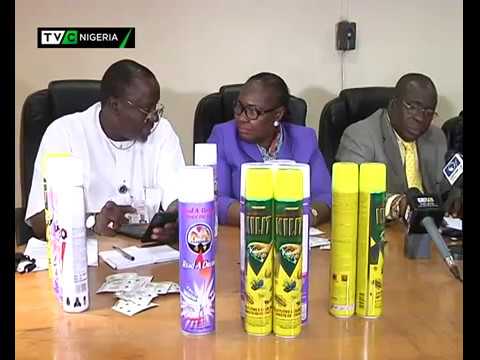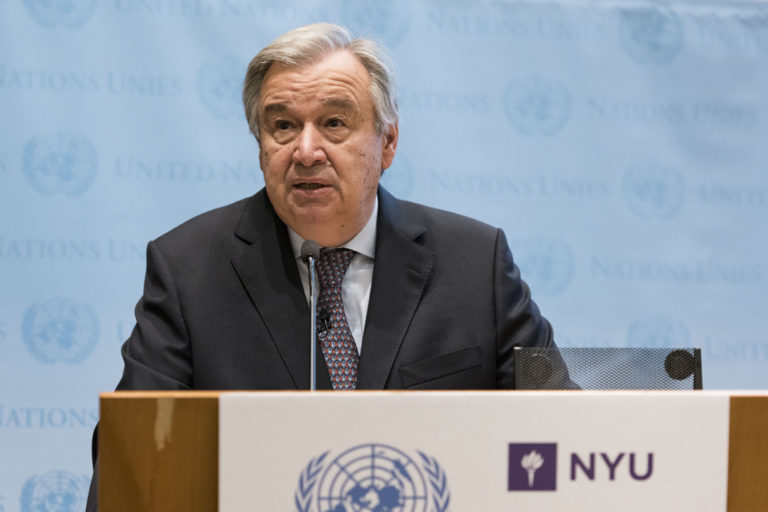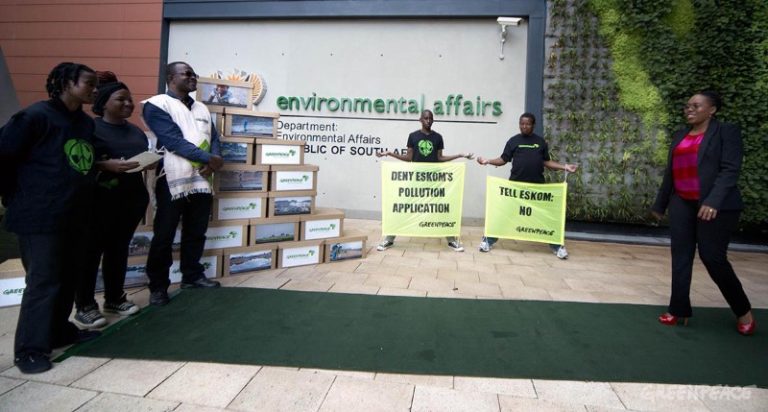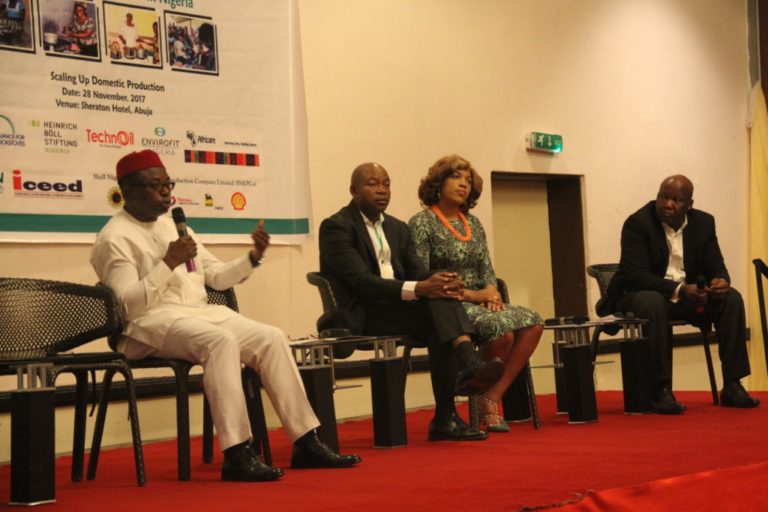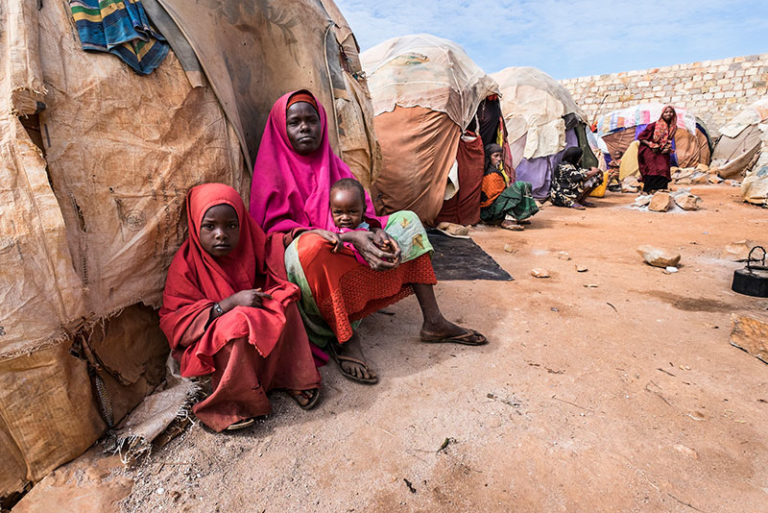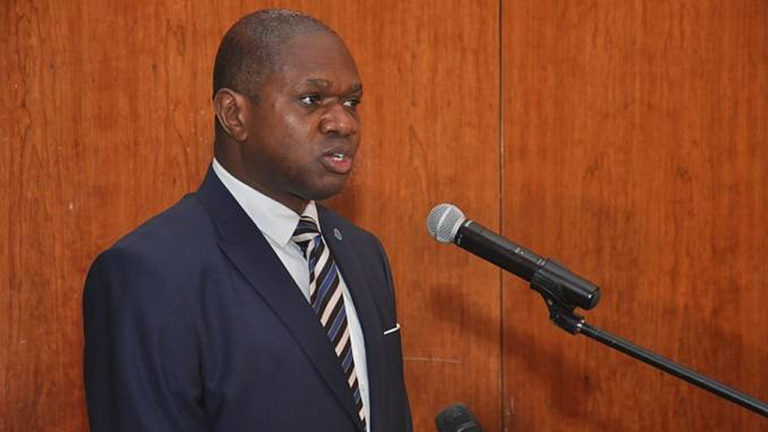Expect more war, hunger, extremism in 2018 – Report
Humanitarian crises around the world will worsen in 2018, with no let-up in civil wars in Africa, near-famines in war-torn regions and the threat of extremist Islamist violence.
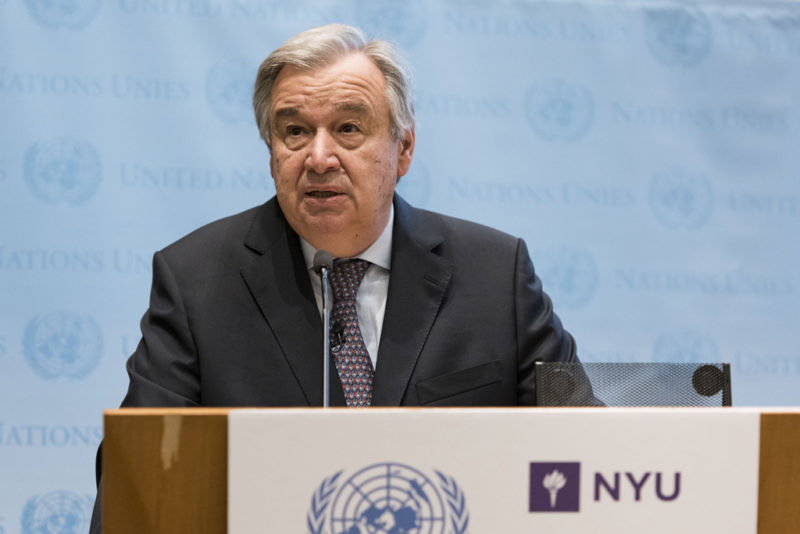
A Geneva-based think-tank, ACAPS, made the prediction in a report published on Thursday, November 30, 2017.
ACAPS, a non-profit venture that supports humanitarian aid workers with daily monitoring and analysis of 150 countries, examined the anticipated needs of 18 countries in 2018 and found little to cheer.
“If 2017 did not look good, predictions for 2018 are no better: violence and insecurity are likely to deteriorate in Afghanistan, Democratic Republic of Congo, Libya, Ethiopia, Mali, Somalia, and Syria in 2018,” ACAPS director Lars Nissen wrote in the report.
In 2018, Ethiopia will join northeast Nigeria, Somalia, South Sudan and Yemen as places at risk of famine, said the report, entitled “Humanitarian Overview: An analysis of key crises into 2018”.
Rather than bringing stability, the prospect of elections in Afghanistan, Iraq, Libya, South Sudan and Venezuela is expected to exacerbate tensions and fuel violence.
Islamic extremism will also continue to cause death and conflict, the report said.
Inspite of the defeat of Islamic State in its main strongholds in Iraq, the group is expected to continue improvised attacks throughout the country to destabilise the government, as well as gaining strength and resources in southern Libya.
Islamic State is also likely to increase its small position in the Puntland region of Somalia, impacting the civilian population and clashing with its bigger regional rival Al-Shabaab, which will increase the lethality of its own attacks.
Islamist armed groups are also expected to take advantage of the withdrawal of government troops from central Mali, gaining local recruits and further influence, while in Afghanistan the Taliban will consolidate their rural strongholds and increased opium production will boost funding for armed groups.
ACAPS said the fragmentation of armed groups in Central African Republic is expected to worsen the violence there, sending more refugees into Cameroon and Democratic Republic of Congo.
“Militia groups previously focused on local grievances will likely become increasingly frustrated by the national, political, and socioeconomic situation and are likely to increase violence, particularly against government forces and institutions,” ACAPS said.
FCTA to immunise 1m children against polio, other diseases
The Federal Capital Territory Primary Health Care Development Board says it is targeting one million children in the territory to immunise against polio and other childhood diseases.

Dr Mathew Ashikeni, the Executive Secretary of the Board, disclosed this at the inauguration of the 16th round of Maternal, Newborn and Child Health Week in Abuja on Thursday, November 30, 2017.
Ashikeni explained that apart from vaccination to children against killer diseases, there would be nutritional assessment of children for malnutrition.
He also said that vitamin A supplement would be provided for children under the age of five to boost their immunity and improve their visions.
Ashikeni said that 60,000 pregnant women would be targeted for HIV testing and other free health services during the exercise.
According to him, health workers have been well mobilised to ensure all children and pregnant women in the territory are reached.
The secretary urged the residents to come out to access the free health services that would be provided during the health week.
In her remarks, the Secretary FCTA Health and Human Services, Ms Amanda Pam said that the present administration was committed to ensure healthy living of children and women in the territory.
Pam explained that FCT administration had engaged 50 midwives to be posted to Primary Health Care facilities across the territory and had distributed essential drugs to 60 PHC facilities.
According to her, the FCTA has just constructed 12 new PHC facilities and renovated 18 of them to provide health care services to the people.
By Mustapha Yauri
Proposed nuclear power station: Activists shutdown South Africa’s environment ministry
Greenpeace Africa and Earthlife Africa Jhb activists on Thursday, November 30, 2017 confronted the Department of Environmental Affairs of South Africa by blocking the main entrance to the Department with nuclear barrels. The activists made a public demand that the Department of Environmental Affairs withdraws the environmental authorisation that has been issued for a proposed nuclear power station at Duynefontein, adjacent to Koeberg in the Western Cape.

At dawn, Greenpeace Africa and Earthlife activists unloaded nuclear barrels filled with smoke and simulated a nuclear disaster. The activists held banners stating that nuclear is never safe and that South Africans say no to nuclear. The main message ‘Stop Nuclear, Protect our Future’ is being displayed on a massive banner, which is hanging from the entrance to the building itself. The protest highlights the fact that nuclear is dangerous and expensive and should not be under consideration in South Africa.
“The Minister of Environmental Affairs is the custodian of the environment for South Africa. The Minister is tasked with ensuring that our constitutional right to a healthy environment is protected for current and future generations. Approving the construction of a nuclear power station is outright negligence and the Minister is putting all South Africans at risk, including future generations. South Africans are clearly saying no to nuclear, and there is no point coming to work if you are going to completely fail to do your job,” said Melita Steele, Senior Climate and Energy Campaign Manager for Greenpeace Africa.
The Environmental Impact Assessment (EIA) for the new nuclear power station has been a drawn-out process for nearly a decade, with affected communities, civil society and South African citizens conned into contributing to what has been a flawed process from the start. The Minister has chosen to discard the input of civil society and follow the recommendations of a flawed EIA report, which were based on outdated, and incomplete information, as well as assumptions that are not justified or justifiable.
“The 30-day period for South Africans to appeal the environmental authorisation for Duynefontein comes to an end tomorrow. Earthlife Africa and Greenpeace Africa are here to show our opposition to the construction of a new nuclear power station in this country, and to call on the Minister to withdraw her approval. Our activists will continue to blockade the entrance until our demands are met. We are calling on all South Africans to support us in our appeal to the Minister to retract the authorisation for Duynefontenin.” said Makoma Lekalakala, Senior Programmes Officer for Earthlife Africa, Johannesburg.
A detailed appeal will be submitted to the Minister on Friday. Greenpeace, Earthlife Africa and SAFCEI will consider their legal options in terms of the way forward, pending a decision on the appeal by the Department of Environmental Affairs.
Stakeholders reach consensus to upscale locally made clean cookstoves
The Federal Ministry of Environment and the Nigerian Alliance for Clean Cookstoves have resolved to continue to work on expanding access to clean cooking solutions in Nigeria.
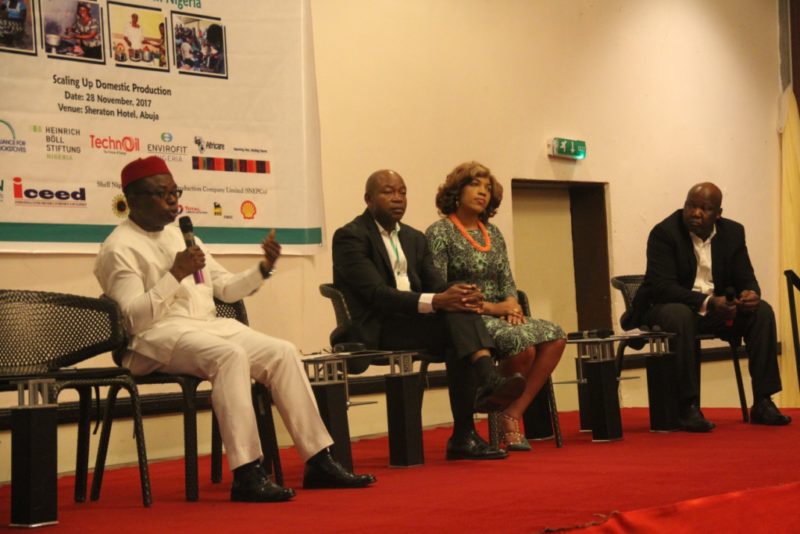
The legislative arm of government has also declared that it would work with the executive arm to ensure adequate legislation that supports small and medium scale clean cookstoves manufacture.
These formed major outcomes of the Nigeria Clean Cooking Forum 2017, where a new course was charted for the promotion of Made-in-Nigeria clean cookstoves. The event, which was held on Tuesday, November 28, 2017 in Abuja, had in attendance over 200 stakeholders from government, private sector, NGOs/CSOs, finance institutions, the international community as well as the media.
The Forum expressed support for the efforts of the Federal Government to scale up domestic production of clean cooking solutions in Nigeria as well as contributing to meeting the country’s obligation to the United Nations climate change agreements of which Nigeria is a signatory.
The Forum was declared open by the Minister of State for Environment, Ibrahim Usman Jibril, who lamented that, despite Nigeria’s huge clean energy potentials, majority of Nigerian households unfortunately still rely on solid biomass for cooking. He noted that the Federal Government was committed to local production and use of clean cookstoves, which has the potential to help Nigeria meet its obligations in the National Determined Contributions (NDCs), agreed upon at the Paris climate summit.
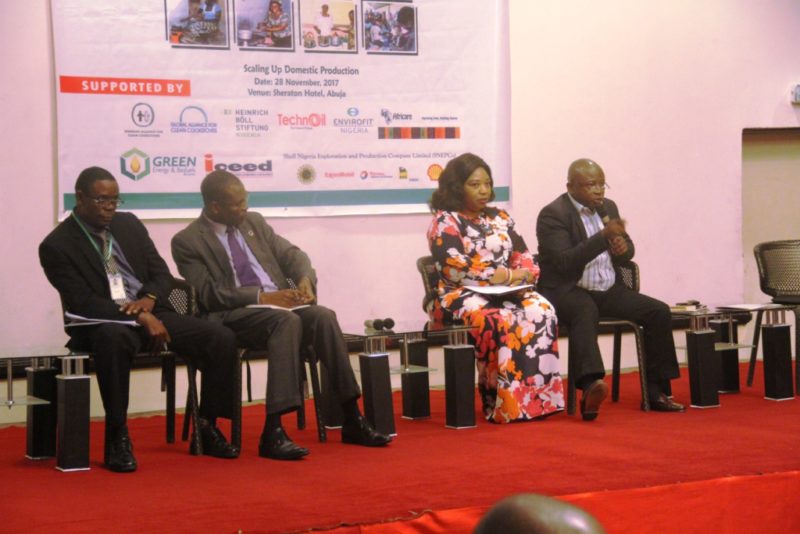
He said: “Access to clean cooking solutions is the right of every Nigerian and the forum’s outcome should address concrete and practical solutions to develop and expand the domestic market for clean cookstoves.”
President of the Senate, Dr Bukola Saraki, in a keynote address, recognised the enormous challenges of using firewood for cooking and the co-benefits of using clean cookstoves such as LPG, ethanol, efficient use of solid bio-fuels and other clean fuels.
Saraki, represented by Senator Abu Ibrahim, Vice Chairman, Senate Committee on Ecology and Climate Change, “Access to clean cooking solutions is the simplest and most basic dividend of democracy every Nigerian should enjoy.”. He pledged that the legislative arm of government would work with the executive arm to ensure adequate legislation that supports small and medium scale clean cookstoves manufacturers in line with the Made-in-Nigeria campaign.
National Coordinator of Nigerian Alliance for Clean Cookstoves, Ewah Eleri, in his welcome address acknowledged the efforts of various partners and stakeholders from government, private sector, NGOs/CSOs and the international community in moving the clean cooking industry forward. He noted that, despite their efforts, the Nigerian Alliance for Clean Cookstoves is struggling to achieve its objectives and urged that deliberations of the forum should chart a practicable way forward for the development of the sector.
Amina Mohammed, UN Deputy Secretary General and Nigeria’s former Minister of Environment, in a video message, pointed out that, as a result of the efforts of the Nigerian Alliance for Clean Cookstoves and other stakeholders around the world, clean cooking solutions have been included in the Sustainable Development Goals (SDGs) and in the commitments of many countries in the Paris Agreement on climate change. She stated that “the United Nations is committed to supporting efforts in expanding access to clean cooking solutions across various countries including Nigeria”.
Senator Bukar Abba Ibrahim, Chair, Senate Committee on Climate Change and Ecology, urged that the outcomes of the forum be translated to local languages for the consumption of the general public.
Samuel Onuigbo, Chairman, House Committee on Climate Change, stated that the legislature has taken appropriate steps in making a law on climate change and that, in due course, the details of the proposed law would be made public.
Speaking on behalf of the Minister of Health, Dr. U. M. Ene-Obong, Director of Climate Change, outlined the health problems associated with smoke from cooking in an open fire and noted that the ministry works with stakeholders to promote the rights of women and children which includes access to clean cooking solutions.
Representative from Food and Agricultural Organisation (FAO), Mr. Patrick David, underscored the need for safe and environment friendly access to fuels and energy for the Internally Displaced Persons (IDP) as well as for the need to disseminate clean cookstoves country wide.
The forum also agreed that there is need for adequate financing of clean cooking solutions in the country. In this regard, Bank of Industry and the Federal Ministry of Environment mentioned the different sources of financing mechanisms including the Green Climate Fund and Micro Credit.
Permanent Secretary, Federal Ministry of Environment, represented by Dr. Peter Yerima Tarfa, Director, Department of Climate Change, in his closing remarks, appreciated all participants, stating: “The huge participation shows the importance of the forum.”
He urged all participants to keep spreading the gospel of clean cooking across the country and re-emphasised that the ministry would continue to support and partner with the Nigerian Alliance for Clean Cookstoves to actualise the resolutions of “this great event”.
About 20 organisations showcased their clean cooking solutions. There was a musical performance by a rap duo named “Floss”. Their message essentially talks about elimination of smoke from Nigerian kitchens through the adoption and use of clean cookstoves.
The Nigeria Clean Cooking Forum is an annual gathering of government, professionals and entrepreneurs working to accelerate the production, deployment, and use of cleaner, more efficient cookstoves and fuels.
Research has confirmed that smoke from the traditional use of firewood is estimated to cause 95,000 deaths annually in Nigeria. After malaria and HIV/Aids, this is reportedly the third highest killer mostly of who are women and children. Women and the girl child walk long distances and spend hours a week in search of firewood. Even though the country is one of the world’s largest exporters of LPG, most Nigerian households rely on firewood for cooking. This also contributes significantly to deforestation as well as the attendant consequences of climate change.
Clean cooking will save lives, empower women, improve livelihood and combat climate change, according to researchers, adding that it is a priority area in energy access that is central in achieving the goals of Nationally Determined Contributions (NDC) and Sustainable Energy for All (SE4ALL) Initiative in Nigeria.
“Clean cooking energy for all is not only possible but a right for the Nigerian citizens. The domestic market for clean cooking solutions must be developed through innovative partnership and support, thereby the government and private sector need to stimulate the market for ‘Made in Nigeria’ clean cookstoves,” said Eleri.
Severe drought, conflict displaced 32,000 in Somalia in October – UN
About 32,000 people have been displaced by conflict and severe drought ravaging several parts of Somalia in October, the UN humanitarian agency said on Thursday, November 30, 2017.

The UN Office for Coordination of Humanitarian Affairs (OCHA) said in its latest bulletin that this is a slight decline in the number of newly displaced people, compared to about 49,000 people displaced in September.
“Of those displaced in October, 23,000 were due to drought related reasons as the cause of the displacement, while 8,000 cited conflict,’’ the UN said.
The Horn of Africa nation is in the midst of unprecedented drought after rains failed for the fourth year in a row.
Humanitarians in Somalia have mobilised $1.2 billion since January for famine prevention to reach the most vulnerable with life-saving assistance.
The UN agency, which cited figures compiled by the UNHCR-led Protection and Return Monitoring Network (PRMN), said over one million people have been displaced due to drought compounded by armed conflict since January, mainly from rural areas to urban centres.
It said the latest displacements bring the estimated number of displaced in Somalia to over two million people.
“It is imperative to complement humanitarian assistance with more sustainable durable solutions for IDPs, currently making up over 16 per cent of the population,’’ OCHA said.
Dry season farming: FAO to support 110,000 households in North-East
At least 110,000 households, comprising 700,000 people in Adamawa, Borno and Yobe states, are to benefit from the Food and Agriculture Organisation (FAO) input support for the 2017/2018 dry season farming.
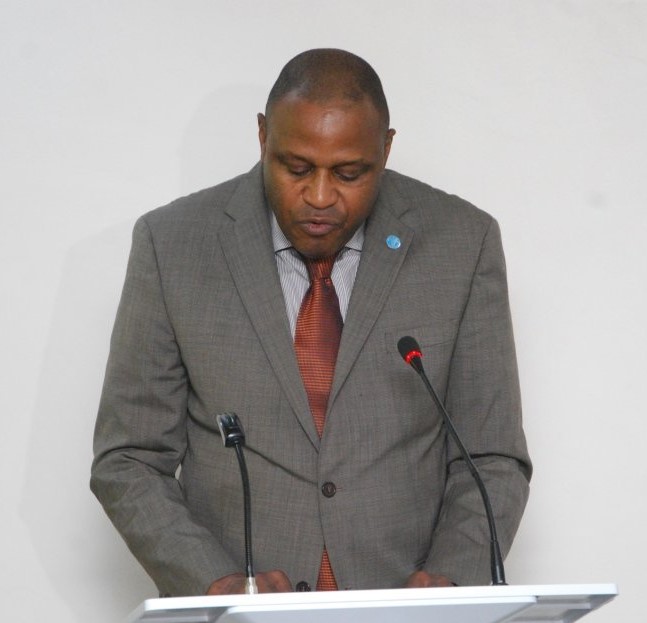
The FAO Country Representative, Mr Suffyan Koroma, made this known on Thursday, November 30, 2017 in Yola, Adamawa State at the inauguration of FAO dry season input support programme.
Koroma said the beneficiaries comprised the Internally Displaced Persons (IDPs) in formal and informal camps, returnees and host communities.
Koroma also said 44,575 households in 15 local government areas would benefit from the support in Adamawa alone.
“These 15 Local Government Areas (LGAs) have been identified by the Adamawa authorities as having high potential for irrigated vegetables and rice production.
“The inputs to be provided will include kits of vegetable seeds, rice seeds, fertiliser, water pumps and hand tools kits for micro gardening.
“Extension services will be provided by Adamawa State Agriculture Development Programme distributed in 15 LGAs.
“Furthermore, farmers Field Schools will be introduced in the LGAs to promote best agricultural and nutrition practices,” Koroma said.
He recalled that, during last cropping season, 41,000 households were reached with improved seeds of staple food.
The food he said include millet, maize, cowpea and sorghum while women headed households got additional support of vegetable kits and fertiliser.
According to Koroma, FAO assessment shows that the interventions has considerably boosted the households’ food security and nutrition status in the state.
The FAO country representative said that FAO was also supporting a livestock restocking programme in Adamawa State.
“Under this programme, 250 bulls will be distributed to youths for fattening and generating activities, while 6,350 goats will be distributed, mainly to women to rebuild their assets and foster nutrition.”
Koroma reiterated the commitment of FAO to ensuring the implementation of its mandate of a ”World free from hunger.”
He lauded donors of the programme: Belgium, France, Germany, Ireland, Norway, US-OFDA, SIDA, Switzerland, Central Emergency and Relief Fund of UN.
In his remarks, Gov. Muhammadu Bindow of Adamawa State lauded FAO for its sustained support to food security in the state
He was represented by the Commissioner for Agriculture, Mr Waziri Ahmadu.
The governor said the state government was making effort to modernise agriculture and needed the technical and resource support of FAO to succeed.
Also in his remarks, the representative of American University of Nigeria (AUN), the implementing partner of the programme in Adamawa, Prof. Yusuf Attahiru, commended the programme.
He said the institution, as part of its efforts to support the transformation of agriculture, would introduce agriculture business management programme.
Attahiru expressed optimism that the planned programme, when materialised, would support the transformation of agriculture to business and make it more attractive.
Responding on behalf of beneficiaries, Mr Moses Kafare and Mrs Philomena Dagoje, who are IDPs, said that the interventions by FAO had affected their lives positively.
“We can now feed ourselves. This approach is like the popular proverb of teaching somebody how to fish which is better than continue giving him fish.
”We are indeed grateful for the support,” Kafare said.
By Yakubu Uba
UNIDO urges government to implement policy on solid waste management
The United Nations Industrial Development Organisation (UNIDO) on Thursday, November 30, 2017 urged the Federal Government to implement the National Policy on Solid Waste Management in the country.
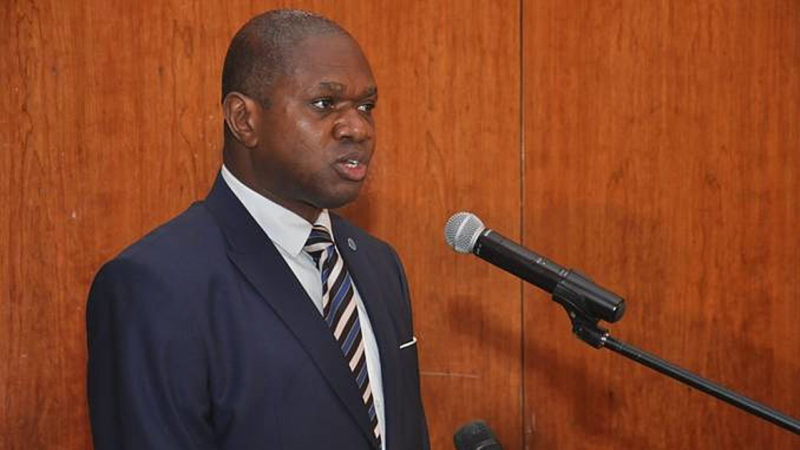
The UNIDO Country Representative, Mr Jean Bakole, made the appeal in Abuja at the National Stakeholders’ Workshop on the Review and Validation of Draft National Policy on Solid Waste Management in Nigeria.
Bakole, who was represented by UNIDO National Programme Officer, Dr Chuma Ezedimma, said that Nigeria, as a leader in Africa, must demonstrate its leadership through the effective implementation of the policy.
According to him, solid waste is a global problem which needs an effective and economical management strategy.
He said that countries were facing increasing challenges of solid waste management, adding that with an increasing global population, solid waste generation was bound to be on the increase.
“According to a United Nations Environment Programme (UNEP) report, bulk density of residential waste in some countries was taken and compared, and Nigeria recorded 250kg, as against 330kg for Egypt.
“The U.S. recorded 100kg, as against 150kg for UK; 400kg to 600kg for India and 400kg for Indonesia,’’ he said.
Bakole said that the review and validation of the draft policy on national solid waste management was, therefore, essential because it would help to guide relevant stakeholders on specific areas of investments in solid waste management.
“This draft will also identify the key stakeholders and build an effective institutional structure, while facilitating incentives, job creation and linkages to global environment treaties.
“To ensure the success of this policy, there must be political will and private sector involvement; efforts should be made to encourage research and development, aggressive awareness drive, realistic action and effective enforcement drive,’’ he said.
The Minister of State for Environment, Alhaji Ibrahim Jibril, who declared the workshop open, urged the participants to contribute meaningfully to the policy document, which was aimed at ensuring sustainable solid waste management in the country.
Jibril, who was represented by the Permanent Secretary, Federal Ministry of Environment, Alhaji Shehu Ahmed, expressed delight at the number of the workshop participants who were drawn from different waste management organisations.
He urged the participants to produce a critical document that would safeguard the environment and human health against unwholesome disposal and handling of solid waste.
Also speaking, Prof. Oladele Osibanjo, the National President, Waste Management Society of Nigeria, urged the Federal Government to provide an enabling environment that would facilitate private sector-driven management of waste resources.
He said that the government must spearhead efforts to develop and enforce the national policy on solid waste management so as to spur investments in waste management and recycling projects.
By Deji Abdulwahab

